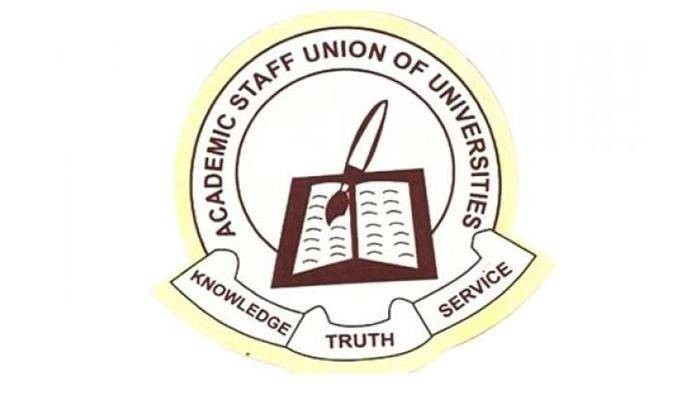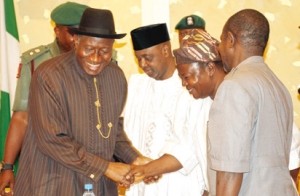
It is therefore not surprising that a large percentage of lecturers across the universities appear incapable of examining repercussions of frequent strikes critically and comprehensively; it is as if they are stymied by marginal improvement in salaries after each strike.
But as we argued last week, there is no clear evidence that such improvement has translated into enhanced quality of teaching and research. Without scientific evidence that indefinite strike is beneficial to various stakeholders in the universities, ASUU’s frequent resort to it, as far as I am concerned, is like traveling in labyrinthine waters without adequate navigational equipment.
So, what is preventing ASUU members from demanding reliable evidence first before canonizing indefinite stoppage of teaching as the only option open to them to make government see reason? One of the frequent and ill-tempered retorts I get from colleagues anytime I suggest a paradigm-shift in our approach to trade disputes with government is “Why should lecturers think out of the box? All the salary increases we got from government thus far have been through strikes. What other option is there?”
This reply is so myopic, so disingenuous, that one cannot really fathom whether it is more an acknowledgement of lecturers’ declining capacity in creative problem-solving or a reflection of the shallow, promotion-motivated, research orientation that is increasingly dominating the mind-set of academics in our institutions of higher learning – I suspect that a combination of both is involved.
However, there are still excellent teachers in various universities who can generate pragmatic novel ideas about how lecturers can get more of what they deserve from government without resorting to frequent strikes.
Unfortunately, the atmosphere within ASUU is always so overwhelmingly in favor of strike that it seems as if members of the union derive some kind of weird psychological satisfaction by staying away from the classrooms.
Hence, the voices of caution and moderation are drowned by cacophonous trumpeters of ASUU “struggle” against “enemies” of university education in Nigeria. Now, is it true that strike is the only option through which ASUU can get its legitimate demands fulfilled by government?
Superficially, it appears as if that is the case, but I do not think so. Indeed, in future, if lecturers fail to restrategize, both the government and Nigerians will be so immunized against strike due to the frequency of its occurrence that the impact would be minimal. At any rate, how many lecturers have really spent time to think deeply about alternative ways of improving their own welfare without frequent disruptions in the system? I believe the number will be negligible.
Of course, if well-meaning academics really put their minds to it, they can come up with novel, less disruptive, avenues that can motivate government to honour agreements with ASUU. Consider this proposal: the union can set up a standing ASUU-FGN Agreement Implementation Lobbying Committee (AFAILOC) whose sole mandate is to lobby the government of the day to maximise implementation of ASUU-FGN agreements. In selecting members of this committee, ASUU has to be clearheaded and pragmatic.
My suggestion in that regard is this: ASUU should identify people that have considerable influence on those in leadership positions and appoint them as members of the committee. For instance, Goodluck Jonathan, Namadi Sambo, David Mark and Aminu Tambuwal are the topmost political leaders in Nigeria today. Each of them has a confidant (or confidants), someone that he listens to and takes advise from. Assuming that Mr. President is known to dote on his wife, it would be a good strategy to use senior female academics to persuade her to join the committee.
The same applies to Sambo and others. Of course, the confidant could be anybody – a former teacher, employer, religious leader or traditional ruler etc. A few sound academics, particularly those with appropriate emotional intelligence for lobbying, should be co-opted into the committee as well. Once the group is in place, it will work underground; its mandate is to meet with relevant government officials at agreed intervals, preferably out of media spotlight, for the sole purpose of persuading government to implement government had agreed with ASUU. Certainly, sincerity of purpose and selflessness on all the parties concerned is a conditio sine qua non for the recommendation to work.
Our proposal has the fundamental advantage of tapping into the goodwill of those that have personal relationships with topmost decision makers in the country who function as a go-between between the federal government and ASUU for amicable implementation of agreements. Again, it is a realistic option among several that can be invented, fine-tuned and tried by lecturers to break the vicious cycle of strike today, agreement tomorrow, and strike yet again and so on.
The recurrent tiresome approach by government and ASUU is a clash of egos. Government and lecturers are always fighting a futile battle of wills to determine who will blink first, with ASUU doing its best to portray government as irresponsible and unreliable, whereas government uses delay tactics to strengthen its case that lecturers are impatient and insensitive to the harsh economic realities of the moment. In the process, university education in the country is jeopardized.
That said, no Nigerian government has met UNESCO’s recommendation that governments should allocate twenty-six percent of their annual budgets to education. The refusal of our leaders to comply is baffling, given the crucial importance of education in the quest for rapid and sustainable national development. Yet, ASUU on its part must realize that all the money in this world, on its own, cannot solve our problems unless there is honesty, sincerity, determination and unwavering commitment and dedication by lecturers, students, university a
uthorities and other stakeholders in the system.
We suggest that government should allow universities that have the requisite capacity to mount viable academic programmes which can generate additional revenue. NUC’s overbearing stance in this regard is suffocating.
For instance, why must NUC compel a solid, upwardly mobile, university like the University of Lagos to stop its evening programme, at a time many people, including lecturers, are benefiting from it? Is it right to force each university, irrespective of its pedigree, location, staff strength, facilities and prestige into the same NUC’s Procrustean bed or straitjacket? Certainly, the crises in Nigerian universities and in the education sector generally predated the current dispensation.
Unfortunately, President Jonathan and other sybaritic top political office holders are not really bothered that university students are out of school for prolonged periods due to strikes by ASUU – why should they, since they have enough money to send their children to better universities abroad.
Similarly, lecturers should recognize that frequent resort to indefinite strikes portrays them as lacking in creativity and imagination, as people who are selfish to the extent of pretending that there is nothing wrong in collecting full salaries even when they have not performed one of the most important duties they are employed to perform – teaching.
I know there are still many dedicated lecturers who truly enjoy teaching despite the harsh conditions in our universities. ASUU should spare a thought for such colleagues too. CONCLUDED.



